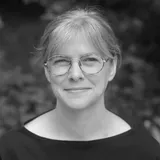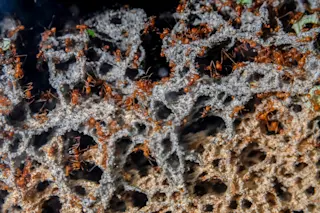Do ants poop? Yes. Any creature that eats will poop and ants are no exception.
Because ants live in close quarters, they need to protect the colony from their feces so bacteria and fungus doesn't infect their health. This is why they use toilet chambers.
Whether they isolate it in a toilet chamber or kick it to the curb, ants don’t keep their waste around. But some ants find a use for that stuff. One such species is the leafcutter ant that takes little clippings of leaves and uses these leaves to grow a very particular fungus that they then eat.
Like urban humans, ants live in close quarters. Ant colonies can be home to thousands, even tens of thousands of individuals, depending on the species. And like any creature that eats, ants poop. When you combine close quarters and loads of feces, you have a recipe for disease, says ...















